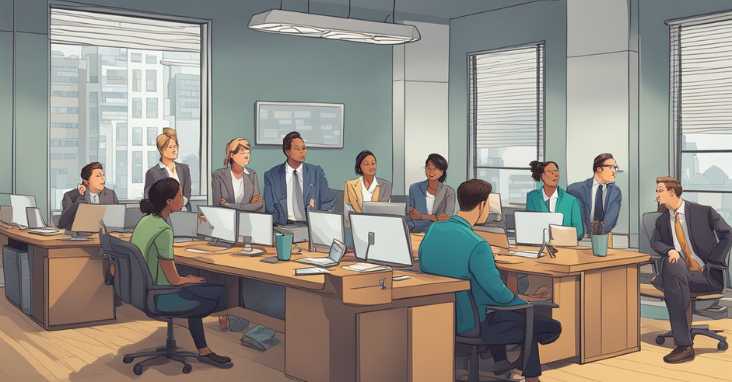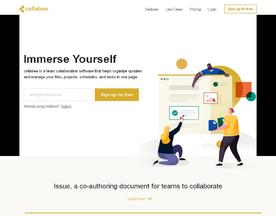What are would you rather questions for work? ‘Would You Rather’ questions for work are fun, engaging prompts that spark discussion and help team members think creatively and connect.
Would you rather questions for work have been a popular icebreaker activity for years, but have you ever considered using them in the workplace? Asking would you rather questions for work can be an effective way to engage employees, encourage critical thinking, and even improve communication in the workplace. However, crafting the right questions and knowing when to use them is key to their success.

The Purpose of Would You Rather Questions at Work
The purpose of would you rather questions for work is to get employees thinking, talking, and engaging with one another. They can be used in a variety of settings, such as team-building exercises, brainstorming sessions, or even during a meeting to break up the monotony. When used correctly, these questions can help employees get to know each other better, build trust, and improve communication.
Crafting Effective Would You Rather Questions for Work
Crafting effective would you rather questions for work requires a bit of thought and creativity. The questions should be thought-provoking, but not offensive or inappropriate. They should also be relevant to the workplace and encourage critical thinking. For example, “Would you rather work on a project alone or with a team?” is a simple but effective question that can spark conversation and give insight into an employee’s work style.
Key Takeaways
- Would you rather questions for work can be an effective way to engage employees and improve communication in the workplace.
- Effective would you rather questions for work should be thought-provoking, relevant, and encourage critical thinking.
- When using would you rather questions for workplace, it’s important to be mindful of the audience and avoid offensive or inappropriate questions.
For more information on how to effectively use would you rather questions for workplace, check out this article from Harvard Business Review.
The Purpose of Would You Rather Questions for Work

Would You Rather questions for work are a fun and engaging way to build camaraderie and encourage teamwork in the workplace. These questions are designed to spark conversation and help employees get to know one another better.
Icebreaker Questions for New Team Members
When new team members join a company, it can be difficult for them to feel comfortable and integrated into the team. Would You Rather questions for work can be a great way to break the ice and help new employees feel more at ease. These questions can also help new team members learn more about their coworkers and build relationships with them.
Employee Engagement and Team Bonding
Employee engagement is an important aspect of a successful workplace. When employees are engaged, they are more productive and more likely to stay with the company long-term. Would You Rather questions for work can help foster employee engagement by encouraging team members to work together and build relationships.
Team bonding is also an important aspect of a successful workplace. When team members have strong relationships, they are more likely to work well together and achieve common goals. Would You Rather questions for work can help build team bonding by creating a fun and relaxed atmosphere where team members can get to know one another better.
According to a study by Harvard Business Review, companies that prioritize employee engagement and team building have higher levels of productivity and profitability. By incorporating Would You Rather questions for work into team building activities, companies can help improve employee engagement and team bonding.
For more information on the benefits of team building and employee engagement, check out this article by Forbes.
Overall, Would You Rather questions for work can be a valuable tool for building relationships and promoting teamwork in the workplace. By incorporating these questions into team building activities, companies can help improve employee engagement and team bonding, leading to a more productive and successful workplace.
Crafting Effective Would You Rather Questions for Work

Balancing Fun and Professionalism
When crafting would you rather questions for work, it is important to strike a balance between fun and professionalism. While it is important to inject some humor and levity into the workplace, it is equally important to maintain a level of professionalism that does not detract from the overall productivity of the team.
One way to strike this balance is to focus on questions that are lighthearted and humorous, but also relevant to the work being done. For example, instead of asking whether someone would rather be a superhero or a villain, a more work-appropriate question could be whether they would rather have the ability to work from home or have an unlimited budget for office supplies.
Encouraging Creativity and Innovation
Another important aspect of crafting effective would you rather questions for work is to encourage creativity and innovation among team members. By posing questions that require creative thinking and problem-solving skills, you can help to foster a culture of innovation and collaboration within the workplace.
Some examples of questions that encourage creativity and innovation include asking whether someone would rather work on a project alone or as part of a team, whether they would rather have a flexible schedule or a set routine, or whether they would rather work on a project that is completely new or one that builds on existing work.
Fostering a Collaborative Environment
Finally, would you rather questions for work can be a great tool for fostering a collaborative environment within the workplace. By posing questions that require team members to work together and communicate effectively, you can help to build stronger relationships and improve overall team dynamics.
Some examples of questions that foster collaboration include asking whether someone would rather work on a project with someone they have never worked with before or with someone they have worked with many times, whether they would rather work on a project that requires them to learn a new skill or one that utilizes their existing skills, or whether they would rather work on a project that is high-pressure or low-pressure.
By following these guidelines, you can craft effective would you rather questions for work that promote creativity, collaboration, and a positive workplace culture. For more tips on how to use humor and levity in the workplace, check out this article from the Harvard Business Review.
Categories of Would You Rather Questions for Work

When it comes to Would You Rather questions for work, there are several categories that can be explored. These categories can help individuals learn more about themselves and their preferences, while also providing insight into their job, business, career growth, and personal development.
Work-Related Scenarios
One category of Would You Rather questions for work involves work-related scenarios. These questions can help individuals think about how they would handle different situations in the workplace. For example, would you rather work on a team project or work independently? Would you rather work in a busy office or a quiet workspace? These questions can help individuals identify their strengths and weaknesses, as well as their preferred work environment.
Personal Preferences and Interests
Another category of Would You Rather questions for work involves personal preferences and interests. These questions can help individuals think about what they enjoy doing and what they are passionate about. For example, would you rather work on a project that involves creative thinking or one that involves critical thinking? Would you rather work on a project that involves technology or one that involves art? These questions can help individuals identify their interests and passions, which can be useful when making career decisions.
Hypothetical Situations
A third category of Would You Rather questions for work involves hypothetical situations. These questions can help individuals think about how they would handle different scenarios in the workplace. For example, would you rather work for a company that values work-life balance or one that values productivity above all else? Would you rather work for a company that encourages innovation or one that values tradition? These questions can help individuals think about their values and priorities, which can be useful when evaluating job opportunities.
Overall, Would You Rather questions for work can be a useful tool for individuals looking to learn more about themselves and their preferences in the workplace. By exploring different categories of questions, individuals can gain insight into their job, business, career growth, and personal development. For more information on Would You Rather questions for work and how they can be used in the workplace, check out this article from The Muse.
Integrating ‘Would You Rather’ Questions into Work Routines

Asking “Would You Rather” questions during work routines can be a fun and engaging way to break up the monotony of the workday. Here are some ways to incorporate this activity into team meetings and breaks, as well as in remote work and virtual happy hours.
During Team Meetings and Breaks
Team meetings and breaks are great opportunities to ask Would You Rather questions for work. This can help team members get to know each other better and build a stronger team dynamic. During meetings, leaders can ask questions related to work or industry-specific topics to promote discussion and knowledge sharing. During breaks, questions can be more lighthearted and fun to help team members relax and recharge.
To make the activity more interactive, team leaders can create a table with different Would You Rather questions for work and have team members vote on their preferred option. This can encourage participation and create a sense of friendly competition.
In Remote Work and Virtual Happy Hours
Remote work and virtual happy hours can make it challenging to maintain a sense of connection among team members. Incorporating “Would You Rather” questions into these activities can help to bridge this gap. Leaders can ask questions related to work or industry-specific topics during virtual meetings, or more lighthearted questions during virtual happy hours.
To make the activity more engaging, leaders can use tools like Kahoot or Mentimeter to create interactive quizzes based on “Would You Rather” questions. This can help to keep team members engaged and create a sense of friendly competition.
One external resource that can be helpful for finding “Would You Rather” questions is ConversationStarters.com. This site provides a wide range of questions that can be used for both personal and professional settings.
Overall, integrating “Would You Rather” questions into work routines can be a fun and engaging way to build stronger team dynamics and maintain a sense of connection among remote team members.
Adapting ‘Would You Rather’ Questions for Diverse Workplaces
When it comes to using “would you rather” questions in the workplace, it’s important to consider the diversity of the employees. Adapting the questions to the cultural and age differences of the employees can help to create a more inclusive environment. Additionally, customizing the questions for different job roles can make them more relevant and engaging for the employees.
Considering Age and Cultural Differences
Age and cultural differences can have a significant impact on how employees perceive and respond to “would you rather” questions. For example, a question that may be appropriate for younger employees may not be appropriate for older employees. Similarly, a question that may be acceptable in one culture may be offensive in another.
To ensure that the questions are appropriate for everyone, it’s important to consider the age and cultural differences of the employees. This can be done by researching the cultural norms of the different groups and adapting the questions accordingly. It’s also important to be mindful of any age-related sensitivities and to avoid questions that could be seen as discriminatory or offensive.
Customizing Questions for Different Job Roles
Different job roles require different skills and have different priorities. Customizing the “would you rather” questions for different job roles can help to make them more relevant and engaging for the employees. For example, a question that focuses on customer service may not be relevant for employees in a technical role.
To customize the questions, it’s important to consider the specific responsibilities and priorities of each job role. This can be done by working with managers and supervisors to identify the key skills and priorities for each role. Once the key areas have been identified, the questions can be adapted to focus on those areas.
It’s important to remember that the “would you rather” questions should be fun and engaging for the employees. By adapting the questions to the diversity of the employees and customizing them for different job roles, employers can create a more inclusive and engaging workplace.
To learn more about creating an inclusive workplace, check out this resource from the Society for Human Resource Management: Creating an Inclusive Workplace.
Examples of ‘Would You Rather’ Questions for Work

For Team Building and Leadership
Team building and leadership are essential for any organization to function effectively. Here are some ‘Would You Rather’ questions that can help build team spirit and enhance leadership qualities:
- Would you rather lead a team of experienced professionals or a team of fresh graduates?
- Would you rather have a team that is highly skilled but lacks motivation or a team that is less skilled but highly motivated?
- Would you rather take a risk and fail or play it safe and miss out on opportunities?
- Would you rather have a team that is diverse but has communication barriers or a team that is homogenous but communicates well?
For more team building activities, check out this link from Forbes.
For Stress Relief and Work-Life Balance
Stress is a common problem in the workplace, and it’s essential to find ways to manage it. Here are some ‘Would You Rather’ questions that can help relieve stress and promote work-life balance:
- Would you rather have a flexible work schedule or a higher salary?
- Would you rather have a job that requires travel or a job that allows you to work from home?
- Would you rather have a boss who is strict but fair or a boss who is lenient but inconsistent?
- Would you rather have a job that is mentally challenging but pays less or a job that is less challenging but pays more?
For more tips on managing workplace stress, check out this link from HelpGuide.
For Fun and Laughter
Work doesn’t have to be all serious; it’s essential to have some fun and laughter in the workplace. Here are some ‘Would You Rather’ questions that can add some humor to the workplace:
- Would you rather have a boss who is always serious or a boss who tells bad jokes?
- Would you rather work in a quiet office or a noisy office?
- Would you rather have a company picnic or a company retreat?
- Would you rather have a daily dance party or a daily meditation session?
For more ideas on adding fun to the workplace, check out this link from TinyPulse.
Frequently Asked Questions
Would you rather work on a project with a tight deadline but with a team you get along with, or a relaxed deadline with a team that challenges you?
This is a common question that many employees face. It ultimately depends on personal preference and work style. Some people thrive under pressure and prefer working on projects with tight deadlines, while others prefer a more relaxed pace. Similarly, some people prefer working with a team they get along with, while others enjoy being challenged by a team that pushes them to do their best work.
Would you rather have a job with a lot of travel or one where you stay in the office all the time?
This is another question that depends on personal preference. If you enjoy traveling and experiencing new places, a job with a lot of travel may be ideal for you. However, if you prefer stability and routine, a job where you stay in the office may be a better fit. It’s important to consider the potential downsides of each option, such as the impact on work-life balance and the potential for burnout.
Would you rather give a presentation to the entire company or work behind the scenes on a critical project?
This question relates to public speaking and working style. Some people enjoy the spotlight and thrive on presenting to large groups, while others prefer working behind the scenes and contributing to critical projects without being in the spotlight. It’s important to consider your strengths and weaknesses and what will ultimately make you happiest and most fulfilled in your job.
Would you rather take on a leadership role without prior experience or an expert role in a field you are familiar with?
This question relates to career advancement and personal growth. Taking on a leadership role without prior experience can be challenging, but it can also be a great opportunity for growth and development. On the other hand, an expert role in a field you are familiar with can be a great way to deepen your knowledge and expertise. It’s important to consider your career goals and what will ultimately help you achieve them.
Would you rather participate in a team-building activity that is physically challenging or one that is mentally challenging?
This question relates to team-building and personal growth. Some people prefer physical challenges, such as outdoor activities or sports, while others prefer mental challenges, such as puzzles or problem-solving activities. It’s important to consider your strengths and weaknesses and what will ultimately help you build stronger relationships with your colleagues.
Would you rather have the ability to pick all your projects or never have to do administrative tasks again?
This question relates to work style and job satisfaction. Having the ability to pick all your projects can be empowering and allow you to work on projects that align with your interests and strengths. On the other hand, never having to do administrative tasks again can free up time to focus on more meaningful work. It’s important to consider what will ultimately make you happiest and most fulfilled in your job.
For more information on would you rather questions for work, check out this article.













